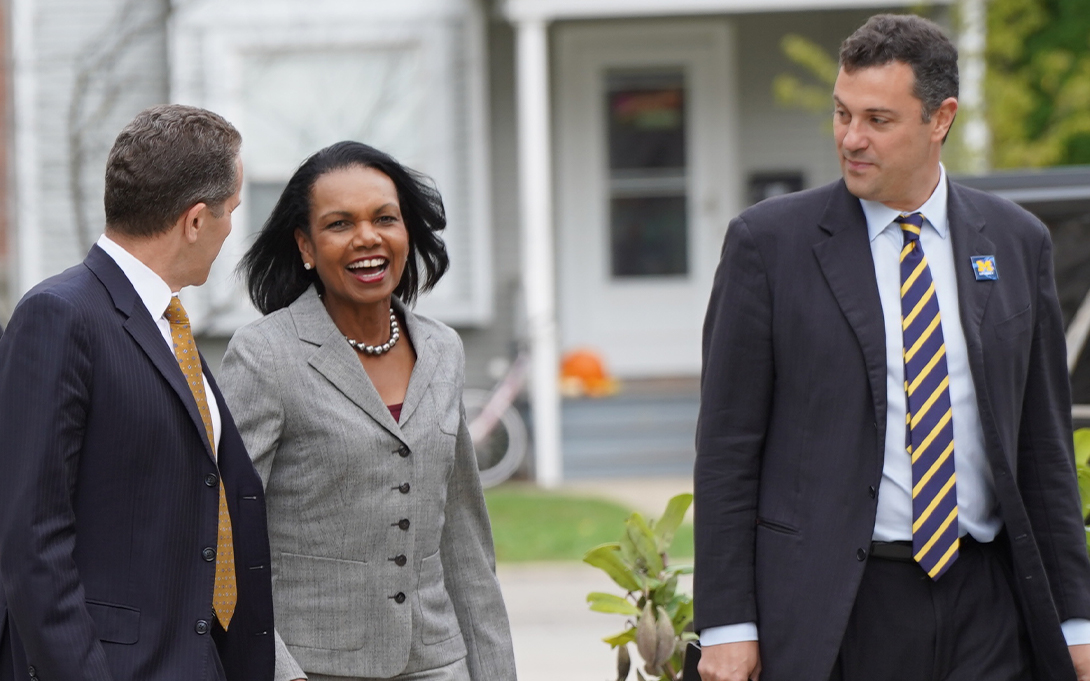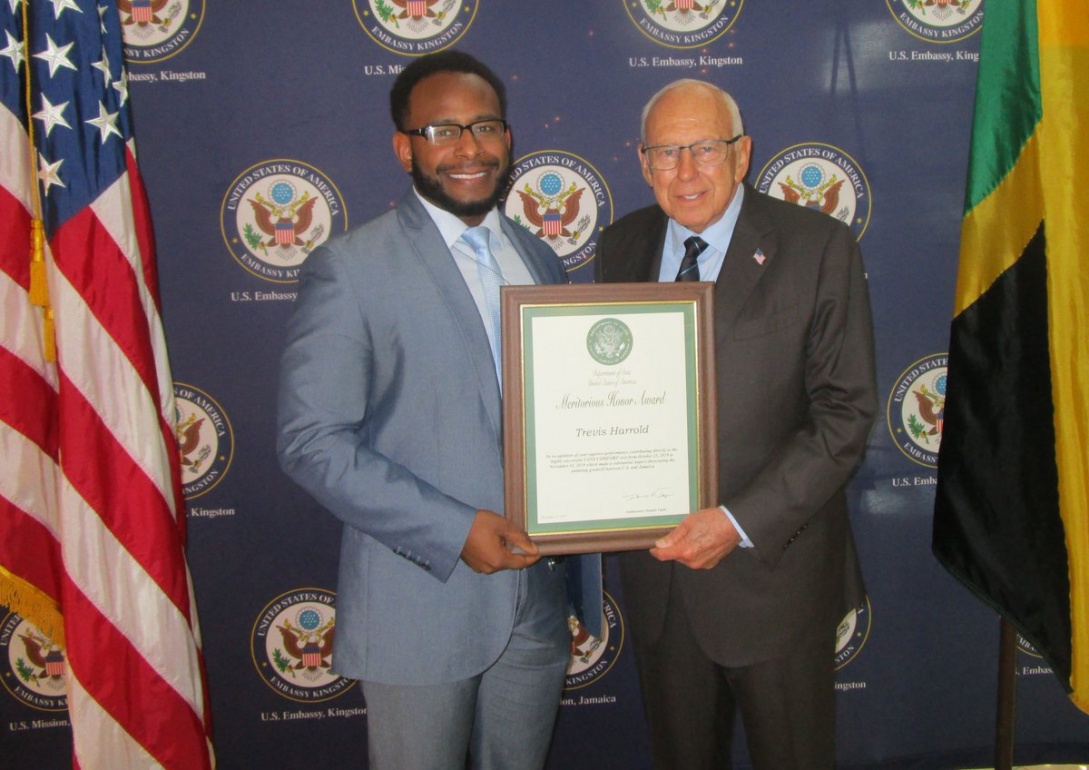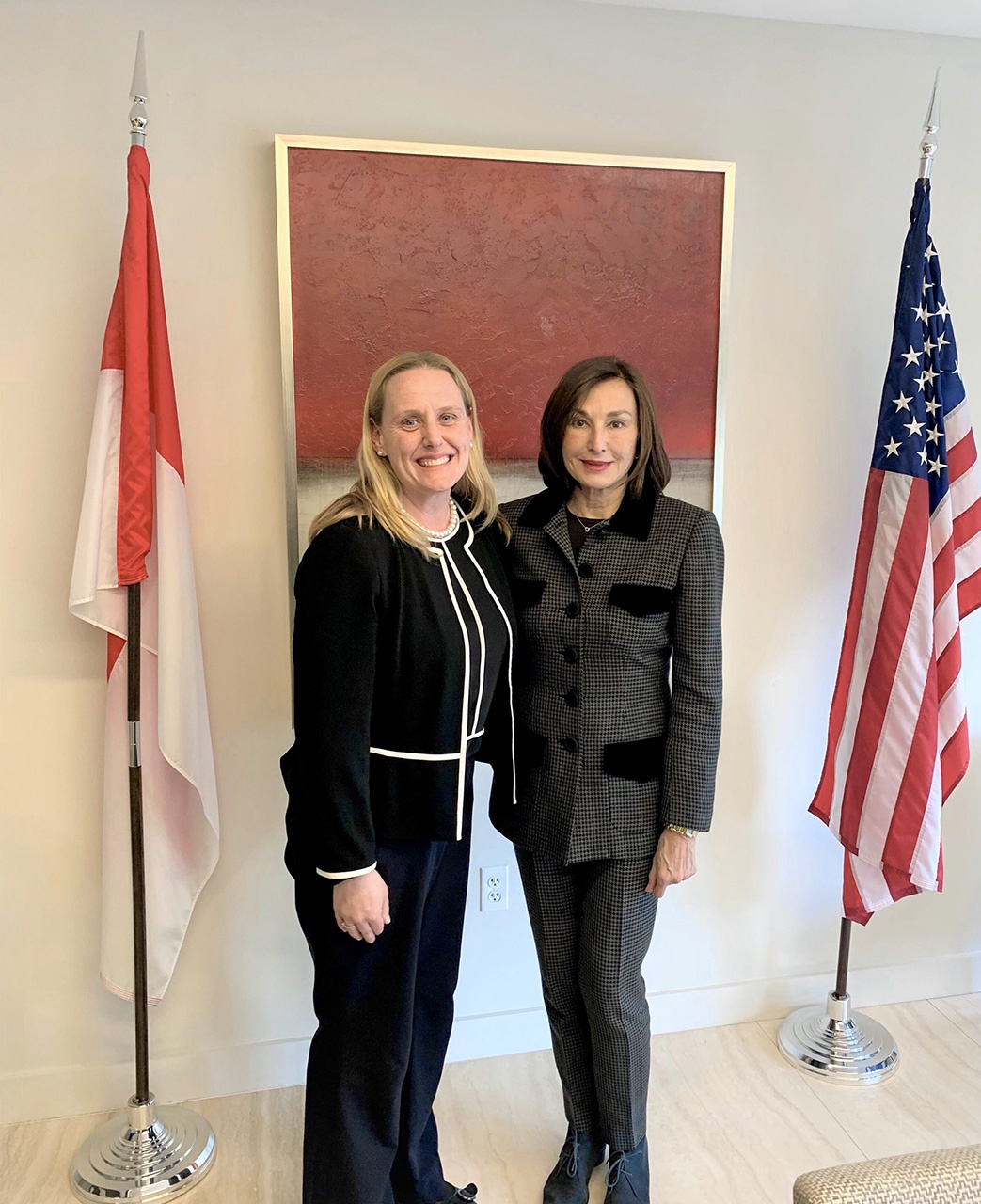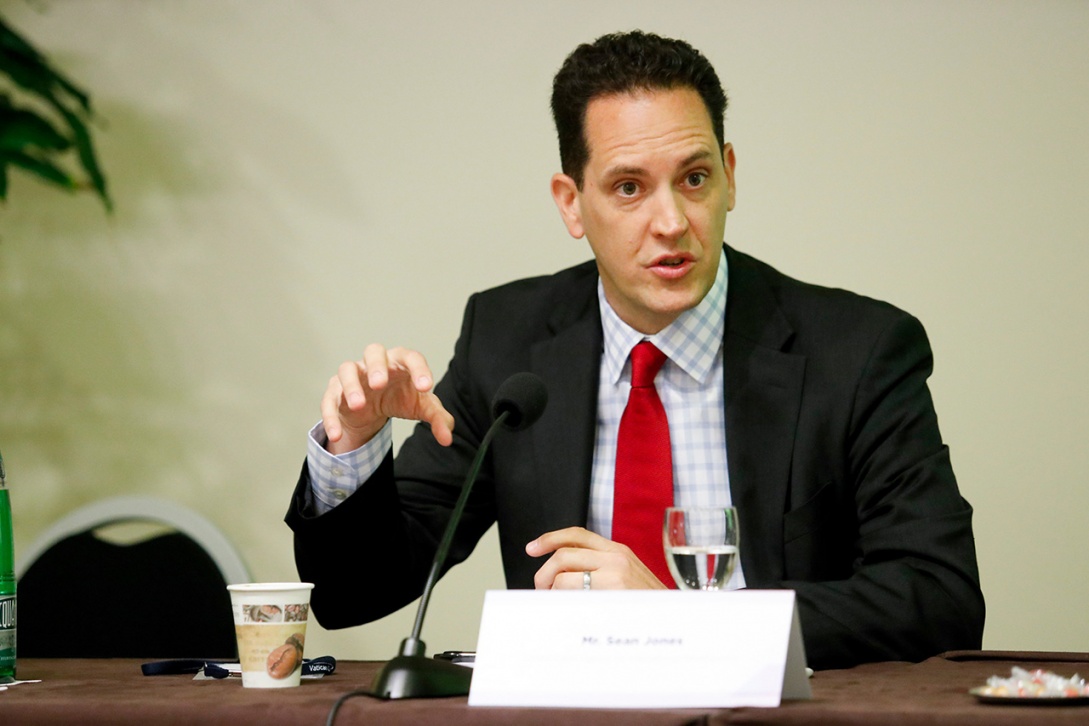
How the Weiser Diplomacy Center is preparing the next generation of foreign affairs leaders.
By Rebecca Cohen (MPP ‘09)
When the Weiser Diplomacy Center (WDC) launched in fall 2019, it made a big splash with incredible speakers that included Hillary Clinton, Condoleezza Rice, Stephen Hadley, Susan Rice, Stephen Biegun, and Samantha Power. Exciting as they are, close up interactions with high-profile leaders are only one aspect of WDC’s approach to preparing students for a career in international affairs.
State & Hill sat down with WDC director and Ford School professor John Ciorciari to learn more about his vision for the center.
To address today’s global challenges, we need professionals who have a strong grounding in history and social science and who can apply that knowledge to complex practical problems. The practitioners we engage at WDC will help train Ford School students to be leaders in translating academic skills into effective international policy practice.
John Ciorciari, director of the Weiser Diplomacy Center
Three guiding principles shape John’s philosophy for how best to prepare students to create and implement effective foreign affairs policy in the world today.
First, he notes that diplomacy is multidimensional. This means that in addition to professional diplomats, many other actors shape international relations. These include businesses, defense and intelligence professionals, and official and civil society actors who exercise various forms of “soft power” through education policy, cultural activities, and the like.
Second, John believes that more emphasis should be placed on deep learning of the context and history of a region. For example, it may make little sense to spend millions of dollars bolstering a weak state’s security and judicial institutions if the real problem is not a lack of capacity but a lack of social trust, perverse official incentives, and corruption.
Third, John stresses that a career in foreign affairs requires adaptability.
Our goal as diplomats ultimately is to help pave the way for constructive conversations and public investments that can lead to a more prosperous and relevant future for a country's citizens.
Sean Jones (MPP ‘00)
WDC prepares the next generation of foreign service professionals by providing a platform on which they can adapt and thrive in new situations. This includes teaching a broad history of foreign affairs, international law, and how international institutions function. In addition, the other core skills that are part of Ford School education--such as leadership, listening across difference, rigorous analysis, and policy writing--are key for a career in foreign affairs.
With the understanding that adaptability, in particular, is not easily absorbed from a book, the WDC is integrating new engaged learning activities, open to all Ford School students, including seminars, career talks, simulations, and skill-building workshops with structured dialogue, scenarios, and case studies. One of these workshops, conducted by Ambassador Michael Klosson, vice president for policy and humanitarian response at Save the Children, helped students practice the skills needed to approach a complex decision. The session provided an interactive discussion of challenges and dilemmas NGOs must navigate, and drew on case studies and Save the Children's experience.
WDC will continue to build on their momentum by inviting policy practitioners to teach seminars, speak at public events, and interact with students informally through coffees and office hours. WDC is also currently recruiting professors of practice to develop a suite of thematic and specific diplomatic courses.
As someone who was younger than most of my peers, and never lived outside of Michigan, having access to the diplomat in residence (at U-M) provided me with the confidence to move forward with a career in the foreign service.
Kristen Grauer (MPP ‘01)
In October, WDC will take the lead as the U-M welcomes representatives from countries around the world for the National Democratic Institute (NDI) symposium virtually or in-person. Learn more here
The Weiser Diplomacy Center was generously funded by a gift from Ambassador Ron Weiser and Mrs. Eileen Weiser. Its mission is to provide practical training to students interested in international affairs, to inform research on topics related to diplomacy, and to serve as a hub for U-M’s engagement with the foreign policy community.
Meet the diplomats
Many Ford School graduates go on to take the Foreign Service Officer Test and embark on a career in diplomacy. Trevis Harrold, Kristen Grauer, and Sean Jones offer their perspectives on diplomacy today and how the Ford School helped them forge a career in foreign affairs.
Trevis Harrold (MPP ‘17) - Foreign Service Officer, U.S. Department of State

Current assignment: Coronavirus Task Force within the Department of State in Washington, DC, coordinating with Congress on the reparation of Americans overseas
What it means to be a diplomat: I’ve always wanted to serve my country. I’m proud that I was able to help cultivate trust and rapport with one of our allies on one of my first assignments: I coordinated the efforts of the U.S. Navy hospital ship that provided humanitarian relief and free medical services for 6,600 Jamaicans.
On diplomacy today: Social media increases the pace and tempo of reporting and policy implementation, and the speed with which we have to react and analyze. Although social media allows us to directly communicate with residents, there is nothing better than in-person interactions, and this is why it is important we have people like us on the ground.
The Ford School difference: There is a lot of opportunity at the Ford School to really learn how to listen to opposing views, create space for disagreement, and make sense of viewpoints to develop an effective approach. I had no idea how much I would use this on the job.
For his achievements with the Navy hospital ship, Trevis received the prestigious Meritorious Honor Award from the U.S. Department of State.
Kristen Grauer (MPP ‘01) - Foreign Service Officer, U.S. Department of State

Current assignment: In training at the Foreign Service Institute before leaving for the Consul General, U.S. Consulate General, Marseille, France
What it means to be a diplomat: The most important aspect of our work is the protection of American citizens abroad. It’s rewarding being the person there when something happens--an illness, a car accident, a family getting lost. As an economic officer, I seek to make a tangible impact through the connections I help build, including helping U.S. businesses more easily export goods and facilitating foreign investments to the United States.
On diplomacy today: We work with people from all walks of life - scientists, journalists, and artists. We meet with all of these people, not just governmental officials. The whole point is to build relationships, which is best done face-to-face.
The Ford School difference: I am a consumer of research, and because of the quantitative experiences at the Ford School, I can speak the language, understand assumptions, and determine if I agree with the analysis.
Sean Jones (MPP ‘00) - Mission Director, USAID/Ethiopia

Current assignment: Ethiopia, where my team and I help the country to be more resilient in the face of recurring climate, food security, and conflict shocks; prepare a healthy and educated citizenry whose economy will gradually be able to support one of the largest populations in Africa; and shift toward a democratic system for the first time in the country’s long history.
What it means to be a diplomat: Core to my belief system is public service, and more specifically, social responsibility. After twenty years, six countries on three continents, and leadership of three Presidential Initiatives, I am proud of my small part in helping companies and governments embrace the once-radical worldview that companies have an immense responsibility to all of their stakeholders, not just to their shareholders.
On diplomacy today: I believe that we are in the midst of a dramatic shift away from poles defined by traditional classifications, economic, and governance systems, toward poles that are defined by social messages that appeal to people across borders. As we sort out the ramifications, we can see that a potential challenge for diplomacy is that the integrity, coherence, and longevity of what holds the poles together may be just as fleeting at the original clever messaging that pulled seemingly-disparate groups of people from different backgrounds and nationalities together in the first place.
The Ford School difference: My inspiration came from working and studying every day with top minds, people who helped refine my thinking and direction, all the while providing me with a deep toolbox of skills that I still use every day.
Below is a formatted version of this article from State & Hill, the magazine of the Ford School. View the entire Spring 2020 State & Hill.
